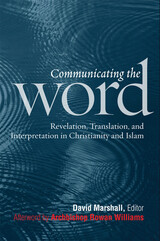
Communicating the Word is a record of the 2008 Building Bridges seminar, an annual dialogue between leading Christian and Muslim scholars convened by the Archbishop of Canterbury. Featuring the insights of internationally known Christian and Muslim scholars, the essays collected here focus attention on key scriptural texts but also engage with both classical and contemporary Islamic and Christian thought. Issues addressed include, among others, the different ways in which Christians and Muslims think of their scriptures as the “Word of God,” the possibilities and challenges of translating scripture, and the methods—and conflicts—involved in interpreting scripture in the past and today.
In his concluding reflections, Archbishop Rowan Williams draws attention to a fundamental point emerging from these fascinating contributions: “Islam and Christianity alike give a high valuation to the conviction that God speaks to us. Grasping what that does and does not mean . . . is challenging theological work.”
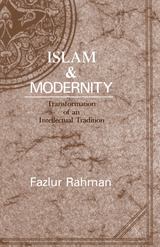
"In this work, Professor Fazlur Rahman presents a positively ambitious blueprint for the transformation of the intellectual tradition of Islam: theology, ethics, philosophy and jurisprudence. Over the voices advocating a return to Islam or the reestablishment of the Sharia, the guide for action, he astutely and soberly asks: What and which Islam? More importantly, how does one get to 'normative' Islam? The author counsels, and passionately demonstrates, that for Islam to be actually what Muslims claim it to be—comprehensive in scope and efficacious for every age and place—Muslim scholars and educationists must reevaluate their methodology and hermeneutics. In spelling out the necessary and sound methodology, he is at once courageous, serious and profound."—Wadi Z. Haddad, American-Arab Affairs
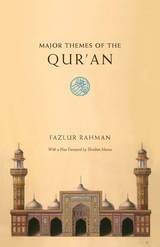
Major Themes of the Qur’an is Fazlur Rahman’s introduction to one of the richest texts in the history of religious thought. In this classic work, Rahman unravels the Qur’an’s complexities on themes such as God, society, revelation, and prophecy with the deep attachment of a Muslim educated in Islamic schools and the clarity of a scholar who taught for decades in the West.
“Generations of scholars have profited from [Rahman’s] pioneering scholarly work by taking the questions he raised and the directions he outlined to new destinations.”--Ebrahim Moosa, from his new foreword
“The religious future of Islam and the future of interfaith relationship . . . will be livelier and saner for the sort of Quranic centrality which Major Themes of the Qur’an exemplifies and serves.”--Kenneth Cragg, Middle East Journal
“There shines through [a] rare combination of balanced scholarly judgment and profound personal commitment. . . . [Rahman is] eager to open up the mysteries of the Qur’an to a shrinking world sorely in need of both moral regeneration and better mutual understanding.”--Patrick D. Gaffney, Journal of Religion
“I can’t think of any book more important, still, than Major Themes of the Qur’an.”--Michael Sells, author of Approaching the Qur’an

Iblīs, the character in the Qur’an who refuses God’s command to bow to Adam and is punished by eviction from heaven, is commonly depicted as a fiendish character no different from Satan. However, some Sufi stories describe Iblīs as the ultimate monotheist, a lover of God, but tragically rejected. This volume seeks the origins of this alternative Iblīs within the Qur’an itself, by looking at each of the seven Qur’anic versions of the Iblīs story as a unique rendering of the basic narrative. Whitney Bodman finds that the likely earliest version of the Iblīs story presents him as a tragic figure, an elder sibling of Adam unjustly displaced from God’s favor. Subsequent renderings present an Iblīs more hostile to humanity, and in the last two abbreviated versions Iblīs becomes an incidental figure in the extended story of Adam.
In modern Arab literature the character of Iblīs is deployed to reveal tragic dimensions of modern life. Although it is often said that there is no place for tragedy in Islam, Bodman’s careful examination of the Iblīs story shows that the tragic exists even in the Qur’an and forms part of the vision of medieval Sufi mystics and modern social critics alike.
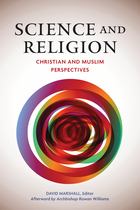
Science and Religion is a record of the 2009 Building Bridges seminar, a dialogue between leading Christian and Muslim scholars convened annually by the Archbishop of Canterbury. The essays in this volume explore how both faith traditions have approached the interface between science and religion and throw light on the ongoing challenges posed by this issue today. The volume includes a selection of relevant texts together with commentary that illuminates the scriptures, the ideas of key religious thinkers, and also the legacy of Charles Darwin.
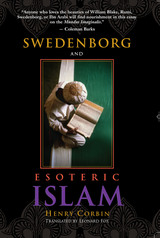
This volume makes two essays by Henry Corbin, the eminent French scholar of Islam, available in English for the first time. Although his primary interest was the esoteric tradition of Islam, Corbin was also a lifelong student of the theological works of Emanuel Swedenborg. The first essay, "Mundus Imaginalis, or The Imaginary and the Imaginal," clarifies Corbin's use of the term he coined, mundus imaginalis, or "the imaginal world." This important concept appears in both Swedenborgian and esoteric Islamic spirituality. The second piece, "Comparative Spiritual Hermeneutics," compares the revelation of the internal sense of the sacred boks of two distinct religions, Christianity and Islam.
READERS
Browse our collection.
PUBLISHERS
See BiblioVault's publisher services.
STUDENT SERVICES
Files for college accessibility offices.
UChicago Accessibility Resources
home | accessibility | search | about | contact us
BiblioVault ® 2001 - 2024
The University of Chicago Press









